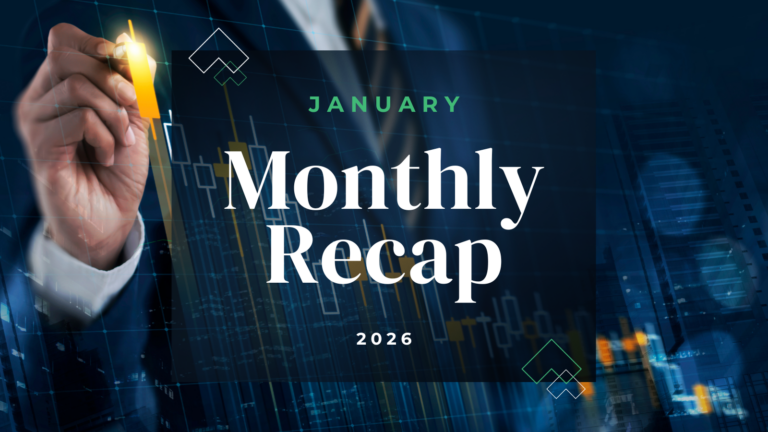By Aoifinn Devitt, CFP® – Chief Investment Officer
We are into December and have already given “thanks” for the harvest. But this is the busiest time of year for that other kind of harvesting – of tax losses. We have noted for much of this year how uneven market performance has been. For certain stocks and sectors, it has been the best of times. For others, the worst.
Just take the dispersion between growth and value stocks as an example – growth has significantly outperformed value this year and the dispersion is the greatest since 2020. The chart below shows the stark difference between the Magnificent 7 Performance, the S&P 493, with these seven stocks stripped out, and the overall market weighted index.

This has led to a fertile environment for selling losing positions to offset gains elsewhere. The growth of automated tax loss harvesting platforms and tools as well as reduced cost has made this strategy even more appealing.
It is also having an interesting, perhaps unintended, effect, which may be in fact reinforcing the current dispersion. As the gap between winners and losers has been quite pronounced the selling has been heavy in certain sectors, which of course will send those sectors more negative and deeper into the red for some existing holders. Cue more tax loss harvesting, and the cycle continues.
The imbalance in equity markets is the “fly in the ointment” of an otherwise buoyant mood around equities. As the chart below shows, there has been some consolidation after the November fervor:

The “risk on” sentiment flowed over in recent days into other risk assets such as Bitcoin and Gold. Gold hit a record level of $2070 per ounce, topping a previous high set in August 2020 when it was perceived as a safety asset. Bitcoin too saw a swift rise from its doldrums, reaching $43,000 – a rise of 4% in 24 hours as we write. It remains difficult to understand the drivers of this – pending approval of Bitcoin related ETFs as well as more clarity emerging around regulation could be part of it. It is also highly likely that it is less widely held now than in its heyday of 2021, which could be driving the price volatility as fewer holders mean less market breadth, and ultimately sharper price moves.
When it comes to interest rates, bond prices have been rallying, (causing yields to fall) reflecting a coalescence around expectations of the next rate move being downwards. The key question of course is “when” this will happen. Falls in the prices of durable goods, and more price cutting by retailers are puncturing the inflation bubble, while signs of weakness in the job market are becoming more evident (e.g., job openings are falling, the rate of hiring has slowed and the great resignation has ground to a halt).
This has been a swift reversal in data, and we wonder if reaction times are going to be too sluggish again. It is worth recalling that the Fed (and other global central banks) were lambasted for being too slow to address rising inflation (deeming it “transitory”). Having changed course and addressed it – emphatically – now the focus is on how the “end to free money” and a “higher for longer rate environment” will affect the consumer, corporates and the investment landscape (especially investments that rely on borrowing such as real estate). Some market watchers expect a spectacular fall in real estate values once financings come due and a distressed cycle to start. They expect corporate distress, and the consumer to buckle. But what if rates reverse course again? What if we do not in fact experience higher for longer rates? What if, in next year’s election year, there is an abundance of caution and even a desire to stimulate growth? We must be cautious not to extrapolate trends too far into the future and should stop to challenge market pundits. After all, they have been wrong before.
DISCLOSURES
The Russell 3000® Value Index measures the performance of the broad value segment of the US equity value universe. It includes those Russell 3000 companies with relatively lower price-to-book ratios, lower I/B/E/S forecast medium term (2 year) growth and lower sales per share historical growth (5 years). The Russell 3000® Value Index is constructed to provide a comprehensive, unbiased and stable barometer of the broad value market. The index is completely reconstituted annually to ensure new and growing equities are included and that the represented companies continue to reflect value characteristics.
The Russell 3000® Growth Index measures the performance of the broad growth segment of the US equity universe. It includes those Russell 3000 companies with relatively higher price-to-book ratios, higher I/B/E/S forecast medium term (2 year) growth and higher sales per share historical growth (5 years). The Russell 3000® Growth Index is constructed to provide a comprehensive, unbiased and stable barometer of the broad growth market. The index is completely reconstituted annually to ensure new and growing equities are included and that the represented companies continue to reflect growth characteristics.
© 2023 Advisory services offered by Moneta Group Investment Advisors, LLC, (“MGIA”) an investment adviser registered with the Securities and Exchange Commission (“SEC”). MGIA is a wholly owned subsidiary of Moneta Group, LLC. Registration as an investment adviser does not imply a certain level of skill or training. The information contained herein is for informational purposes only, is not intended to be comprehensive or exclusive, and is based on materials deemed reliable, but the accuracy of which has not been verified.
Trademarks and copyrights of materials referenced herein are the property of their respective owners. Index returns reflect total return, assuming reinvestment of dividends and interest. The returns do not reflect the effect of taxes and/or fees that an investor would incur. Examples contained herein are for illustrative purposes only based on generic assumptions. Given the dynamic nature of the subject matter and the environment in which this communication was written, the information contained herein is subject to change. This is not an offer to sell or buy securities, nor does it represent any specific recommendation. You should consult with an appropriately credentialed professional before making any financial, investment, tax or legal decision. An index is an unmanaged portfolio of specified securities and does not reflect any initial or ongoing expenses nor can it be invested in directly. Past performance is not indicative of future returns. All investments are subject to a risk of loss. Diversification and strategic asset allocation do not assure profit or protect against loss in declining markets. These materials do not take into consideration your personal circumstances, financial or otherwise.







